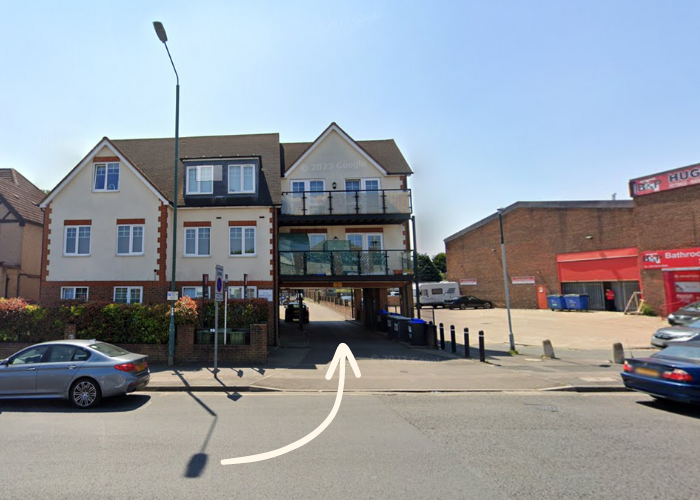Dentures at Bellegrove Dental
Dentures are a life-changing solution for those missing one or several teeth, helping to restore not only the functionality of your teeth, but also enhancing your facial aesthetics and boosting your confidence. We will explain everything you need to know about dentures, including the different types available, the process of getting fitted, and how to care for them effectively.
What are dentures?
Dentures are custom-made replacements for missing teeth and are designed to be taken out and put back into your mouth. While dentures take some getting used to, and will never feel exactly the same as one’s natural teeth, today’s dentures are natural-looking and more comfortable than ever.
Types of dentures
Choosing the right type of dentures is crucial for your comfort and the effectiveness of the tooth replacement. Here are the most common types:
Complete dentures: These are used when all the teeth are missing. They can be either “conventional” or “immediate.” Conventional dentures are made and placed in the mouth about 8 to 12 weeks after the teeth have been removed, and the gum tissue has begun to heal. Immediate dentures are made in advance and can be positioned as soon as the teeth are removed. However, they may require more adjustments during the healing process, as the bone supporting the teeth reshapes as it heals.
Partial dentures: These are often used when some natural teeth remain. A metal framework attaches to your natural teeth, sometimes using crowns placed on top of them. Partial dentures offer a removable alternative to bridges.
Overdentures: Sitting on top of the gums, held in place with dental implants, overdentures provide a stabilization that traditional dentures cannot. They are an excellent option for those who have a few natural teeth roots left that can be preserved.
Custom dentures: Made for aesthetics, fitting more comfortably and looking more like your natural teeth, custom dentures are designed specifically to suit your features and preferences.
The process
Getting dentures made and fitted is a detailed process that may involve several appointments over a few weeks:
- Initial consultation: Discuss your needs and preferences with your dentist, who will recommend the best type of dentures for you.
- Mould making: Impressions of your jaw and measurements of how your jaws relate to each other are taken.
- Wax models: Trial dentures are made from the impressions. These models will be tried on to check for fit, colour, and shape before the final denture is made.
- Final fitting: The final denture is cast and adjusted to ensure a comfortable and secure fit. Your dentist will also provide instructions for care and schedule follow-up appointments to adjust the fit if necessary.
Caring for your dentures
Good care extends the life of your dentures and maintains your oral health:
- Daily cleaning: Brush your dentures daily with a soft brush and non-abrasive cleaner to remove food and plaque.
- Handling: Dentures are delicate and may break if dropped. Handle them over a folded towel or a basin of water.
- Soaking: When not wearing them, soak your dentures in water or a mild denture-soaking solution to prevent them from drying out.
- Regular check-ups: See your dentist regularly to have your dentures examined and professionally cleaned. This helps ensure the best fit and condition of your dentures.







Frequently Asked Questions
Dentures are usually made from acrylic resin, nylon, or metal. The teeth part is often made from resin or porcelain, giving them a natural appearance.
You might need dentures if you have lost several or all of your teeth due to decay, gum disease, or injury. Dentures can help restore your ability to eat and speak more clearly and improve the appearance of your smile.
Yes, alternatives to dentures include dental implants and bridges. Your dentist can help you decide the best option based on your specific dental needs, lifestyle, and budget.
It typically takes a few weeks to get accustomed to new dentures. You may experience some discomfort and increased saliva flow initially, but these issues usually resolve as your mouth adjusts.
While dentures should be worn during the day, it is recommended to remove them at night to allow your gums to rest and to maintain good oral hygiene.
Daily cleaning with a soft-bristled brush and a non-abrasive denture cleaner is essential. Avoid using regular toothpaste as it can scratch the surface. Soak your dentures overnight in water or a denture-cleaning solution.
Dentures typically need to be replaced every 5 to 7 years due to natural changes in your jaw and wear and tear on the dentures.
If your dentures break or crack, contact your dentist immediately. Do not attempt to repair them yourself as this can cause further damage.
Initially, you may need to eat softer foods and cut them into smaller pieces. As you get used to your dentures, you can gradually return to your normal diet, although sticky or very hard foods may still need to be avoided.
Yes, dentures can improve the appearance of your face by providing support for your lips and cheeks, which can sag or appear sunken due to missing teeth.
Focused on your smile!
With us, you can forget the stressful, daunting dental visits! At Bellegrove Dental, our team will always make sure that each visit is always relaxing, swift, and designed around your individual needs!






























